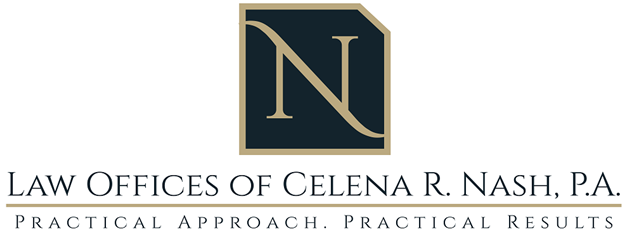Recent case Highlights the Importance of Attention to Details in Real Estate Transactions: Lessons from a minor oversight

Foreign Nationals Owning Real Estate in Florida
February 1, 2024
CS/CS/CS/HB 1021: Community Associations
July 2, 2024In the dynamic world of real estate, the simplicity of using a standard form contract can be appealing. However, as the recent case of Mercado v. Sridhar in the Florida Third District Court of Appeal demonstrates, even straightforward transactions can have complex implications in dealing with contract law. This case highlights why realtors, buyers, and sellers should always consult with an attorney when entering into a real estate contract.
The Case at a Glance
In Mercado v. Sridhar, a seemingly standard transaction using the Florida Association of Realtors and Florida Bar contract form took an unexpected turn. The buyers, Jayanth Sridhar and Nika Bagheri, presented an offer to purchase a home from the sellers, Luis and Chanttel Mercado. The offer utilized the standard Florida Association of Realtors and Florida Bar contract form, supplemented with an addendum addressing furnishings and a leaseback option. However, a crucial step was missed – neither party checked the relevant boxes in Paragraph 19 titled, “Addenda and Additional Terms”, to officially incorporate the addendum into the contract.
After the sellers decided not to move forward with the transaction, the buyers sued for specific performance of the Form Agreement, while the Sellers argued that the contract was unenforceable as there was no mutual agreement on the essential terms outlined in the addenda. The court had to determine whether the Form Agreement stood alone or if the unincorporated addendum was a part of the contract. The Third District Court of Appeal, referencing a similar situation in Muniz v. Crystal Lake Project, LLC, concluded that the Form Agreement was enforceable on its own, as the addendum was not expressly incorporated.
The court’s analysis was influenced by a previous case, Muniz v. Crystal Lake Project, LLC, where a similar situation occurred. The Muniz case established that additional terms or lists not expressly incorporated into a main agreement do not form part of the enforceable contract.
Conclusion
Mercado v. Sridhar serves as a cautionary tale for anyone involved in real estate transactions. While form contracts are useful tools, they are not foolproof. Consulting with a knowledgeable attorney can provide clarity, ensure compliance with legal requirements, and protect your interests. For realtors, buyers, and sellers alike, this case underscores the importance of legal guidance in even the most straightforward real estate transactions.
Practical Points to take away from this case:
- Importance of Detail: Real estate contracts are legally binding documents. Every checkbox, paragraph, and attachment plays a crucial role. In Mercado v. Sridhar, the oversight of not checking the box to indicate that the addendum was being incorporated into the contract had significant implications. Each clause and checkbox carries significant legal weight and must be approached with diligence and understanding.
- Legal Expertise Matters: An attorney specializing in real estate law can identify and explain the nuances of a contract. Their insight ensures that all parties fully understand the terms and their implications. In addition, the attorney should be capable of ensuring that additional terms and conditions are incorporated into the contract.
- Avoiding Misunderstandings: The presence of a legal expert can help clarify the intentions of all parties, reducing the risk of disputes and misunderstandings down the line. The meeting of the minds of the parties is crucial but having their understanding in writing is even more important.
- Protecting Your Interests: Real estate attorneys are adept at foreseeing potential issues and safeguarding your interests. Whether you are buying, selling, or leasing property, their guidance is invaluable.




